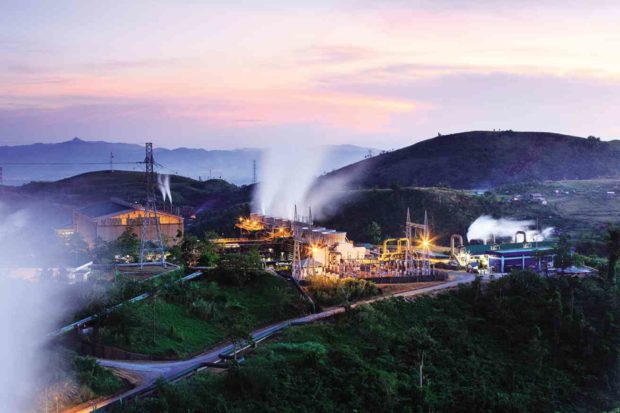
EDC’s 112.5MW Tongonan Geothermal Power Plant in Leyte has been supplying clean, renewable, uninterrupted power to the Visayas region for over 35 years.
As the population rapidly increases, so does demand for basic needs such as food, water, and energy. This creates an increasingly vicious cycle where human activities adversely impact the environment and threaten natural resources. As a result, nations around the world are seeking ways to break the cycle and to establish a resilient future through sustainable practices in business and society. The need for such radical action is more apparent nowhere else than in the Philippines, which is one of the most vulnerable countries to the devastating impact of our changing climate.
Super typhoon Yolanda (Haiyan) that struck our country in 2013 was truly an eye opener for Lopez-owned geothermal leader Energy Development Corporation (EDC) as well as the rest of the Lopez Group of companies. Doing business as usual will no longer work if we want our future generations to have a livable planet.
This motivated the conglomerate led by its Chairman Federico R. Lopez to make a bold decision to help the country decarbonize by generating power only from renewable energy sources instead of coal.
By generating power from pure renewable energy sources such as the 140MW BacMan geothermal facility in Bicol, EDC helps the country avoid 7.8 million tons of carbon dioxide in lieu of coal power sources each year.
“These are extraordinary times that call for extraordinary change and everyone must shift to thinking about the quickest route to a decarbonized economy,” said First Philippine Holdings (FPH) and EDC Chairman and CEO Federico R. Lopez.
Making the shift to RE
Operating in a country that is still primarily powered by coal, the commitment is an uphill battle for EDC but it has managed to be a beacon of hope for a low-carbon economy by sustainably generating power from geothermal sources for over 40 years.
Our country is blessed with indigenous sources of energy that is virtually free and inexhaustible. To harness their full potential, EDC has enriched its portfolio with 1,181 megawatts (MW) of geothermal, 150 MW of wind, 132 MW of hydroelectric power, and 12 MW of solar totaling 1,475 MW. This accounts for 37% of the country’s total generated renewable energy (RE), making it the Philippines’ largest 100% RE firm.
Geothermal energy is considered as the Holy Grail among RE technologies since it is the only one that can provide uninterrupted power all year round among all forms of RE. Hence, EDC refers to its own way of generating this form of power as Geo 24/7.
Greening legacy
Geo 24/7 encapsulates EDC’s sustainable business practices that enhance the environment and empowers its host communities.
While the company’s social forestry program incentivized farmers from its partner communities who helped maintain its watersheds since the 1980s, EDC took a big leap in managing its geothermal reservations in 2008 by applying a science-based approach to bridging forest gaps through BINHI program.
A Filipino term for germling, BINHI is the company’s greening legacy program that aims to bridge forest gaps and bring back abundance 96 threatened indigenous tree species.
Through its BINHI greening legacy program, EDC propagates 96 threatened Philippine native trees in its fully-automated nurseries in Antipolo City, Metro Manila and in Valencia,Negros Oriental.
EDC’s BINHI-led forest protection and restoration initiatives capture 3.96 million tons of carbon dioxide (CO2) each year. This is on top of its avoided 7.8 million tons of CO2 as a result of generating power from 100% RE sources. This makes EDC carbon-negative as the forests that it maintains absorb close to five times its actual annual carbon emissions from its operation. As a result, the company helps the Philippines reduce its carbon intensity by 15%.
While its vision of having a country that is sustainably powered by RE has yet to be achieved, EDC has been making headway in ensuring energy security in major regions of the country, providing the needed regulating reserve capacity to the grid.
EDC’s experience attests to Geo 24/7’s capacity to provide clean reliable baseload power to the Philippines.Through its pioneering steps, efforts in utilizing renewable energy may yet prove to be the hope and stabilizing factor in the midst of many challenges facing our nation today.
EDC’s 112.5MW Palinpinon-1 geothermal power plant in Valencia,Negros Oriental is a model for compact development and the company’s 2nd largest geothermal facility.